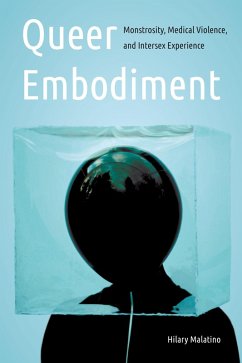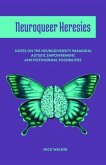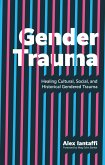Merging critical theory, autobiography, and sexological archival research, Queer Embodiment provides insight into what it means, and has meant, to have a legible body in the West. Hilary Malatino explores how and why intersexuality became an anomalous embodiment requiring correction and how contesting this pathologization can promote medical reform and human rights for intersex and trans persons. Malatino traces both institutional and interpersonal failures to dignify non-sexually dimorphic bodies and examines the ways in which the ontology of gender difference developed by modern sexologists conflicts with embodied experience. Malatino comprehensively shows how gender-normalizing practices begin at the clinic but are then amplified over time at both intimate and systemic levels, through mechanisms of institutional exclusion and through contemporary Eurocentric cultures' cis-centric and bio-normative understanding of sexuality, reproductive capacity, romantic partnership, and kinship. Combining personal accounts with archival evidence, Malatino presents intersexuality as the conceptual shibboleth of queerness, the figure through which nonnormative genders and desires are, and have been historically, understood. The medical, scientific, and philosophical discourse on intersexuality underlying our contemporary understanding of sexed selfhood requires theoretical and ethical reconsideration in order to facilitate understanding gender anew as an intra-active and continually differentiating process of becoming that exceeds and undoes restrictive binary logic.
Dieser Download kann aus rechtlichen Gründen nur mit Rechnungsadresse in A, B, BG, CY, CZ, D, DK, EW, E, FIN, F, GR, HR, H, IRL, I, LT, L, LR, M, NL, PL, P, R, S, SLO, SK ausgeliefert werden.









